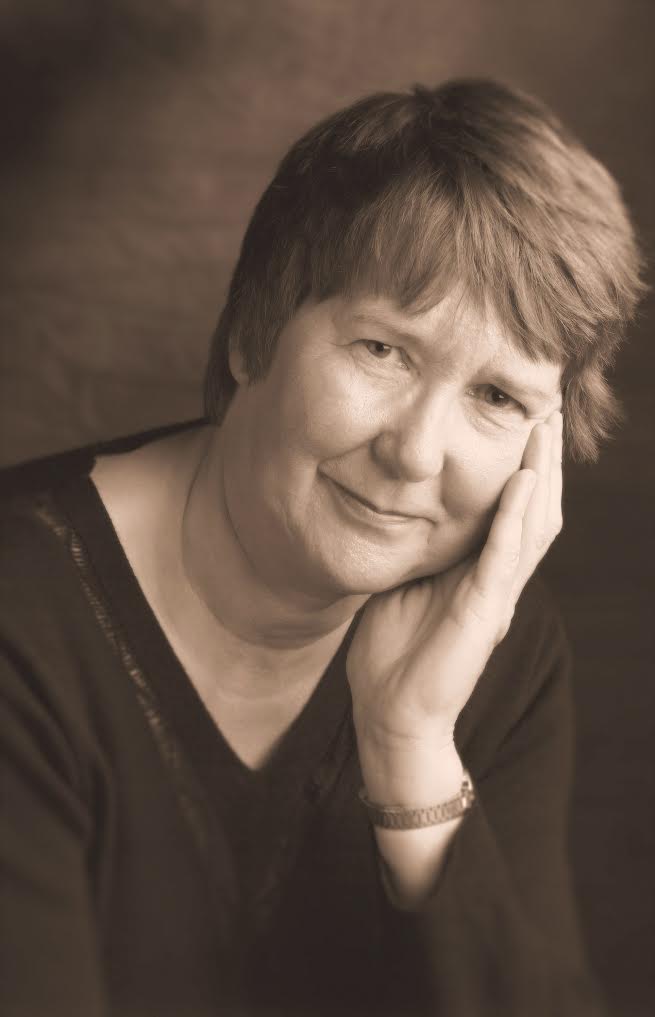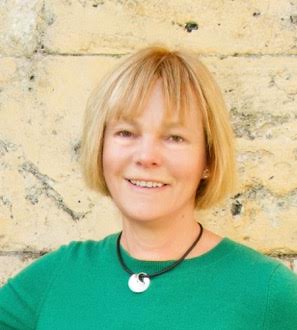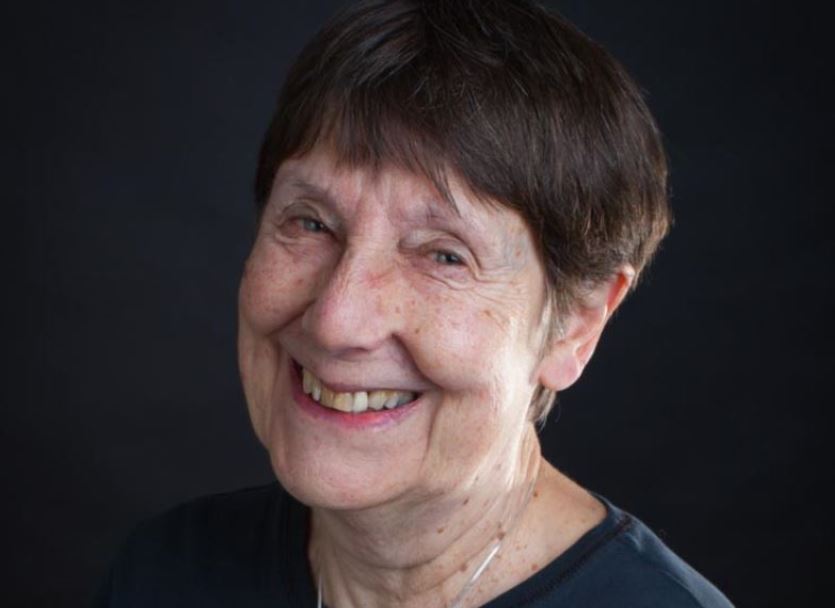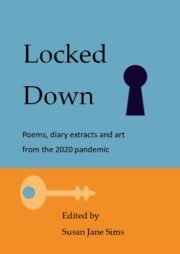I am delighted to announce the results of Poetry Space Competition 2018. All poems in this list (21 in all) including our top three winners will be published in a prizewinners’ anthology. In the meantime cash prizes of £250, £100 and £50 respectively have already popped through the letterboxes of the winners, and those in the shortlist have been asked to choose a prize from amongst the books in the Poetry Space online shop.
1st Prize
The Washing Machine – Pamela Coren
Its creamy benignity has the comfort
of background processes, reliable rituals.
Feed it, and round the house you hear
its bumble-dumble-dum, its whizz and whirr,
and under the stop-start plumbing
a suck and guzzle, little flat splashes.
It is undecided which way to turn,
but serves without comment. Takes your smells,
runs them out. Calms your clothy troubles.
Not baptism, just renewal, a low ablution.
If all else fails in the day, if you feel nothing,
you did the washing. When you say this
it will not insist on its part, but sit quiet,
its drying mouth making an O of relief,
a factory hand clocked off, snap tin empty.

Pamela Coren
Pamela Coren was born in Rochdale, studied at the Universities f East Anglia and Kings’ College London, and went on to teach Medieval and Renaissance Literature at The University of Leicester. She has published academic work on Spenser, Sidney, Donne, lutesong, Gurney, Hopkins and Bunting. As a poet she has published in many magazines, had poems placed in a dozen competitions, and has one full collection The Blackbird Inspector published by Laurel Books in 2016. She is currently studying to translate the lyrics of the twelfth century Chinese woman poet, Li Ching-chao. She is married and lives in Sedburgh, Cumbria.
Pamela’s reaction to winning:
I’m very pleased to have won this year’s competition, as I’ve been more or less out of action since I moved to Cumbria. I’d been knocked off my work-balance by the visual overload of the Western Dales, the richness of the green life at my doorstep. I shook myself out of it at the beginning of this year, and determined to ‘do something every month’ – submit poems to a magazine or enter a competition. And so far its been great, and the publications are coming in again. Poetry Space is a friendly organisation with an open reach, refreshingly free of glitz and fads. So thank you all for the opportunity.
2nd Prize
Reading Henry James in Hospital – Carole Bromley
What Maisie Knew. I haven’t read it
for fifty years. I knew nothing then,
only the rhythm of his prose,
that Maisie was the centre of consciousness
that I would need to sit up late
to finish it before the tutorial,
swigging from a tooth mug
the port I stole from formal dinner.
For me the book will always taste
of peppermint and port and the summer of love.
I turn the pages with my cannula’d hand,
wander away from Sharon glued to Corrie,
from Jean flipping through Take a Break
from Joan’s painful voyage to the toilet.
‘I say, I say, do look out’, Sir Claude
quite amiably protested. Sister trips
over the zimmer Jean parked by my bed,
tells me not to keep my frame there
I do not have a frame, I protest.
Jean looks up from her article, Yet.

Carole Bromley
Carole Bromley lives in York where she is the Stanza rep and runs poetry surgeries for the Poetry Society. Winner of many prizes, she has three
collections from Smith/Doorstop: A Guided Tour of the Ice House, The Stonegate Devil and, most recently, a collection for children, Blast Off!
Carole’s reaction to the news that her poem had won second prize.
I was delighted when Sue emailed me to tell me I had been awarded second prize. I have been writing a sequence of poems recently about a stay in hospital and have just started sending them out so it was very nice to get this feedback from Gill McEvoy, a poet whose opinion I value.
3rd Prize
Tool Setter – Michael Docker
The setter’s right hand has no fingers.
He uses it to club steel plates
into place, catch scrap slivers
like an angler catches fish.
The thick skin
On the old scars tears,
Bleeds, but he doesn’t feel
Anything.
The setter’s words have no finesse.
He uses them to say what he means:
‘Screwdriver’, ‘Maintainence’..
Like a river over a weir
Mending and making flows around
Him. He sets and checks
Everything.
The setter’s days have no finish.
He uses them to catch money
For a future seen in
His dreams, where scars and tears
Are healed by a river, by an angler’s
Silence,
by slivered fish; where he won’t have to say
Anything.
Highly commended:
From the spot where we found a dead Northern Emerald – Susan E. Holland
Hemiola – Jane Newberry
Commended:
Stefan’s Confession – Cathy Whittaker
Parma Violets – Pippa Little
The Loneliest Whale – Cheryl Pearson
Hope – Julia D. McGuinness
From a layby behind the dunes – Susan E. Holland
On your way to somewhere else – Cathy Whittaker
Erasing the future – Claire Coleman
Why can we not stay silent like the trees? – Anna Saunders
Pronouns – Margaret Beston
Bells – Helen Rear
Hearts and Bones – Gillian Lambert
Than to Arrive – Aidan Baker
Requiem – Pamela Coren
A man rakes ash from an oven with a shovel – Sally Davis
Bellows – Tina Cole
In the Architect’s Garden – Jeff Skinner

Poetry Space Competition 2018 judge, Gill McEvoy
Judge’s Comments
You cannot hope to read through an entire batch of competition entries one after the other so my method is to divide the poems into piles of 20 and lay these piles round the edge of my dining table and work my way through, pile by pile, reading each poem twice and reading aloud the ‘possibles’. These then go into a pile in the middle of the table to make the longlist, 60 poems on this occasion. I divided these into piles of 10, repeated the procedure and got a shortlist of 30 poems. Further piles, of 5 this time, and I reluctantly discarded 9 poems. Then the hard job of deciding on the order of merit of these final twenty one poems. This meant a great deal of re-reading and reading aloud, but I have to say I found it very enjoyable and managed to reach a decision.
Forests, single trees, poems to individual flowers, falcons, candles, relationships, and machinery were among the subjects revealed in this batch of competition entries. A wonderfully mixed bag! I want to say a sincere thank you to all of you who entered; it gave me great pleasure to read your poems and also some degree of heartbreak when I came to choose the winners and commended since so many poems almost made it to the short list.
But there can only be one winner and the extraordinary poem about the washing-machine really stood out both for its onomatopoeia and its aural loveliness when I read it aloud. In reading the short-listed poems aloud I was sorry to find that some of the poems looked good on the page but didn’t succeed when read out loud.
Thus the second prize went to Reading Henry James in Hospital which sounded satisfyingly rhythmic, had a wonderful contrast between youth and old age, plus a chilling final word.
Third Prize went to Tool Setter which I found a very touching poem about the monotony and implied noise of the work described, compared with the longed-for peacefulness of angling and the relief of silence.
Warm congratulations to the winners and all the commended poets. And to everyone else, keep writing, keep reading poetry, and keep entering competitions – you never know when it will be your turn to win.
Gill McEvoy 2018







